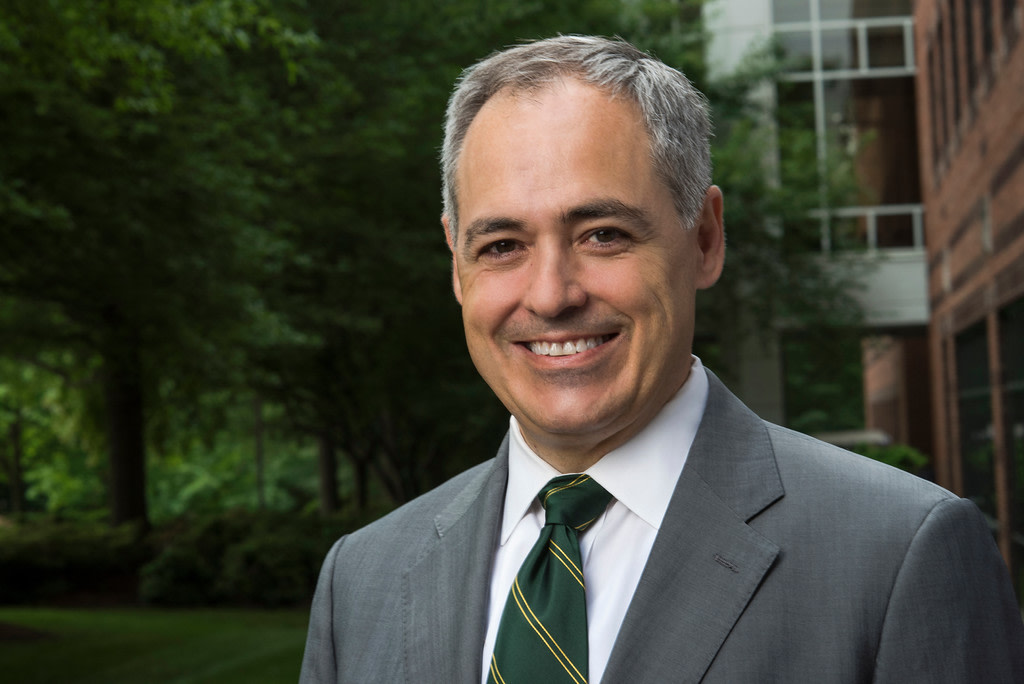University System Names Georgia Tech’s Next President

The Board of Regents tapped Ángel Cabrera as the sole finalist for the Georgia Tech presidency.
University System of Georgia
The University System of Georgia has named Ángel Cabrera as its sole finalist for the Georgia Tech presidency. Cabrera has served as president of George Mason University in Virginia since 2012.
“Dr. Ángel Cabrera has the academic background, leadership skills and community ties necessary to lead a premier research institution like Georgia Tech,” University System Chancellor Steve Wrigley said in a statement. “His strong record of improving student outcomes, increasing enrollment, strengthening research and enhancing stakeholder partnerships will enable him to successfully advance the priorities and meet the needs of the Georgia Tech campus community.”
According to a press release, Cabrera earned his Ph.D. and M.S. in cognitive psychology at Georgia Tech, which he attended as a Fulbright Scholar. He also earned bachelors and masters of science degrees in computer and electrical engineering at Universidad Politécnica of Madrid. Before his tenure at George Mason, Cabrera led Thunderbird School of Global Management (now part of Arizona State University) and IE Business School in Madrid.
“I am honored to be considered for this position,” Cabrera said in a news release. “Georgia Tech is very special to me. My wife and I met there and our son is a recent graduate. It would be a privilege to lead such a great institution.”
Cabrera is the first Spanish-born president of an American university.
The Board of Regents has to wait five business days before taking a final vote on his candidacy. Cabrera would replace outgoing President G.P. “Bud” Peterson, who announced his resignation in January.
A student group called the Young Democratic Socialists of America (YSDA) at Georgia Tech issued a statement opposing Cabrera’s nomination. The group criticized Cabrera’s leadership at George Mason, saying he was more concerned with raising money than listening to students’ concerns. The statement also decried the Board of Regents’ presidential search process, claiming students were underrepresented.








